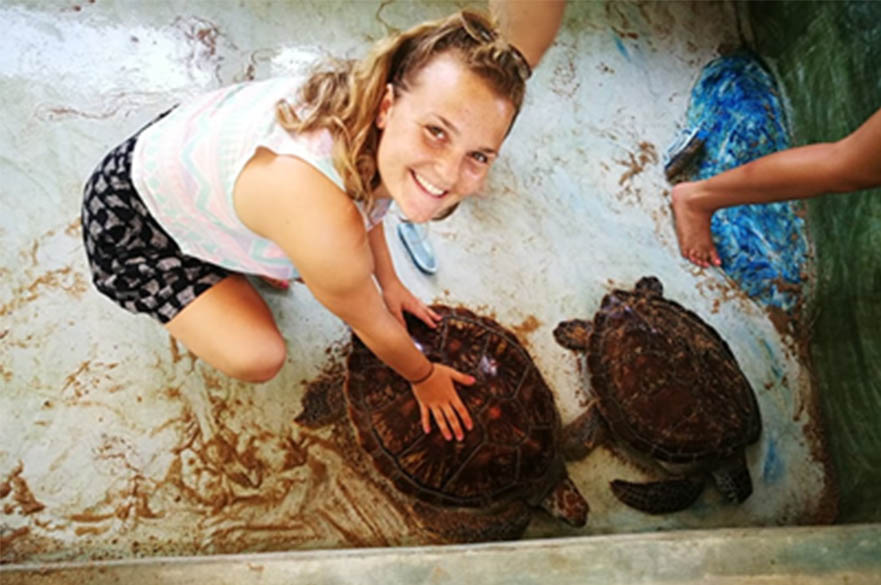
NTU offers a supportive, friendly, safe environment to learn and grow as an individual. What more could you need!
More about Hannah
Hannah is a BSc (Hons) Animal Biology graduate of Nottingham Trent University. During her third year, Hannah undertook a placement in Sri Lanka as a marine and wildlife conservation volunteer.
Here’s what she had to say about her time at NTU and placement year:
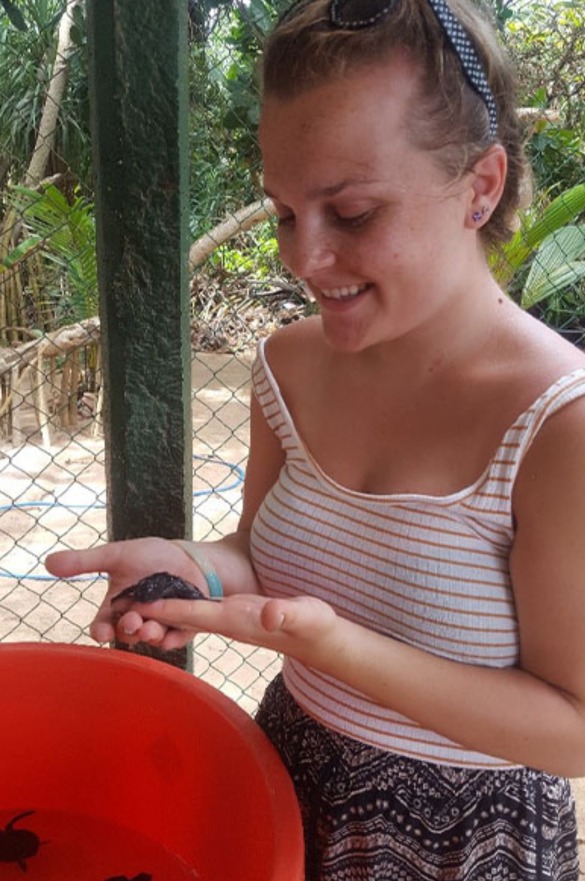
Tell us why you chose to study Animal Biology at NTU
“When I was looking at universities, I researched and visited a few with various different courses, but none of them offered the facilities like Brackenhurst or a course as suited to me.
What have you enjoyed the most about your course?
“I've enjoyed all the modules on the BSc Animal Biology course, but specifically the Biological Basis of Behaviour module in second year. It was interesting gaining an understanding of a variety of animals and how their behaviour has adapted to aid survival.
“The enthusiasm of lecturers also helped me gain knowledge in areas I find difficult and don’t particularly like, for example animal nutrition.
Why would you recommend the course to others?
“NTU offers a supportive, friendly, safe environment to learn and grow as an individual. What more could you need!
“The Animal Biology course includes all areas of the industry (production animals, domestic animals, exotics) so whatever your area of interest it can be suited to the course and assignments. With assignments you choose what species you wish to write about, which enables developing understanding of your area of interest or an area you are not so knowledgeable in; this develops a more rounded understanding of the industry and animals.”
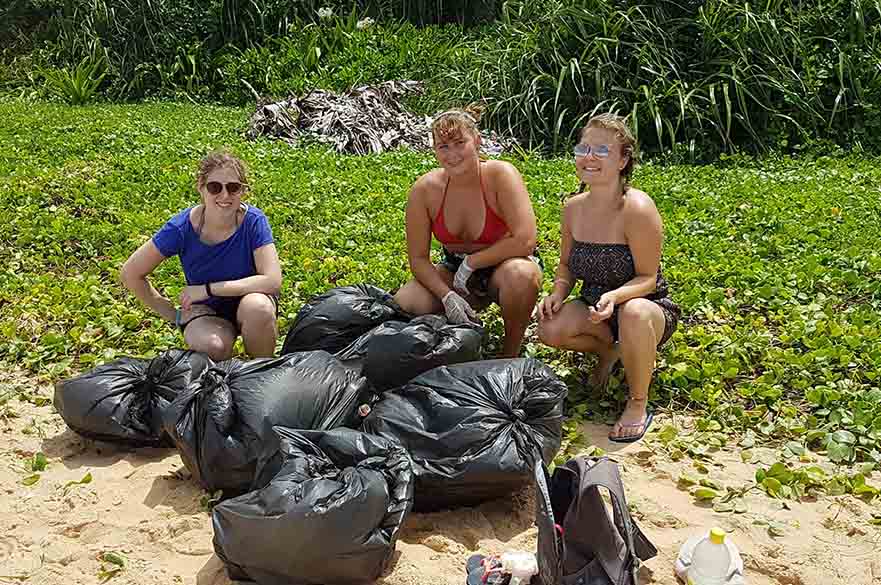
Tell us a little more about your placements and the projects you were involved with?
“The project I was involved with included carrying out daily beach cleans in the local areas where we managed to collect 150 kg of rubbish per clean. In Sri Lanka, beaches are seen as ‘dumping grounds’ for plastic waste.
“We also visited the jungle, where we planted trees, which was one of my favourite parts of the programme. We planted indigenous trees back into the Sri Lankan jungle to help with the effects of deforestation and the invasion of other species of tree, which has resulted in the decline in Sri Lankan trees such as the Sri Lankan Ironwood.
“I loved doing this as it’s lovely to know that those trees will be there for years to come and make a direct impact to wildlife in Sri Lanka.
“Alongside this we also carried out work at a turtle hatchery. Here we cleaned tanks, maintained the sanctuary by moving sand around for the sea defence, and fed the turtles.
“The final part of the project was coral reef and frogs nest restoration. The nests were made for the Ranwella Spined tree frog. These amphibians are one of the least protected on the island, and live their lives within these nests. Due to deforestation they are endangered, so we created nests for them to lie in, in hope that the species will thrive.
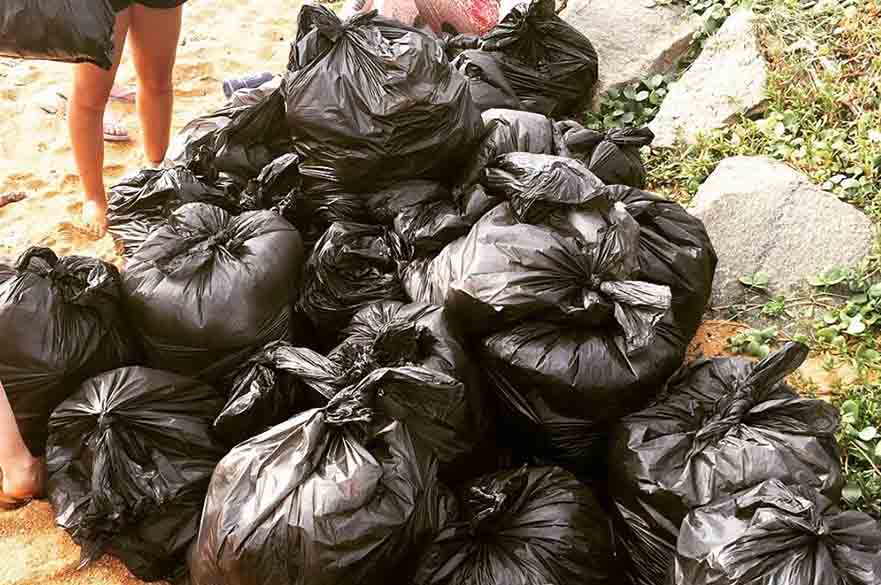
“We also undertook a coral reef project where we created restoration grids, that will one day be used as a starting point for corals to regrow and kick start life. This is an attempt to help with the bleaching of coral reefs crisis due to global warming.”
How did your placement help with your personal development and degree?
“Undertaking a placement proved to be one of the best, and most exciting decisions I have ever made. Challenging myself to living on the other side of the world for seven weeks on my first travelling experience pushed me out of my comfort zone and helped me grow into a new person.
“Before I started my placement, I set myself two goals; the first to improve my confidence in communicating with people, and secondly to make an impact on the project I was volunteering on.
“The placement allowed me to prosper in both these goals as the group of volunteers changed every week, so I had plenty of opportunities to initiate conversation and enhance my confidence and interpersonal skills.
“Personally, I feel I was able to make an impact on the marine and wildlife conservation project as I put all my effort, skills and motivation into every day at work. As the weeks progressed, I was able to take more of a lead role and guide new volunteers with what tasks needed completing.
"Undertaking a placement proved to be one of the best, and most exciting decisions I have ever made."
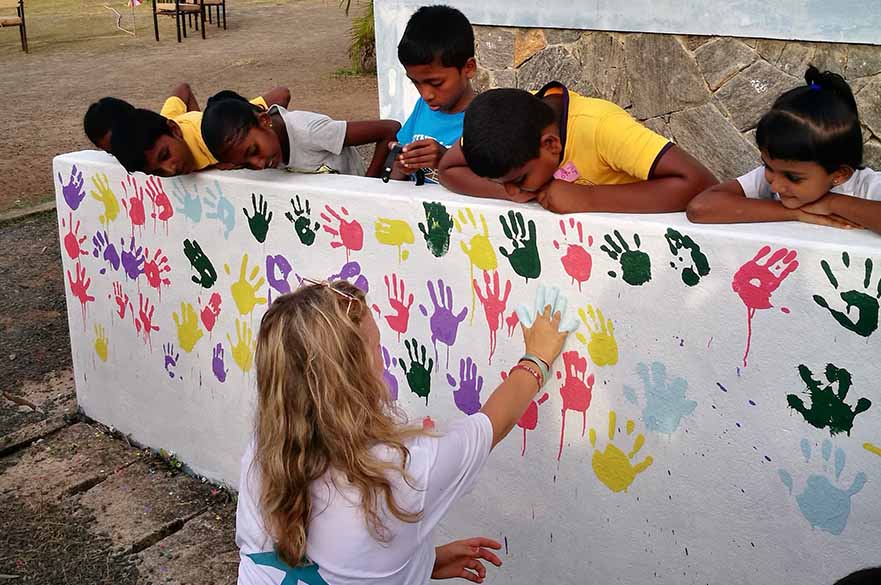
“This developed my leadership skills such as explaining tasks, motivating people, delegating and communicating with others which will help with future employment if I am assigned to lead a task.
“This is something I've always struggled with as a naturally shy person, but this adventure taught me if I know what I am doing then go for it and help others.
“Following my placement, my eyes have been opened to a career in the conservation sector as I thoroughly enjoyed the placement. I now have a more positive outlook on opportunities that arise and know I can do anything I put my mind to.”
Still need help?
-
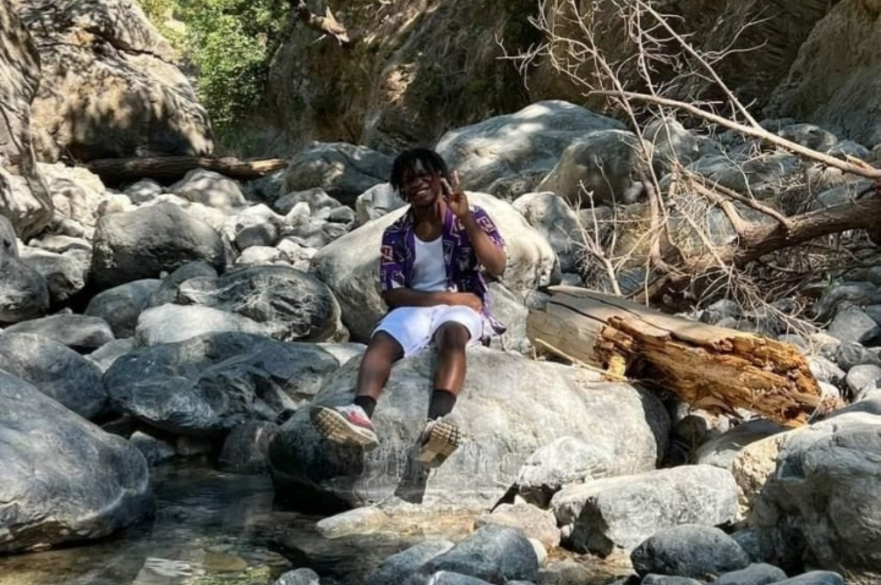
STUDENT PROFILE
Aaron Matthew
ZoologyUnited Kingdom
https://www.ntu.ac.uk/study-and-courses/courses/our-students-stories/animal-rural-environmental-sciences/aaron-matthew
-
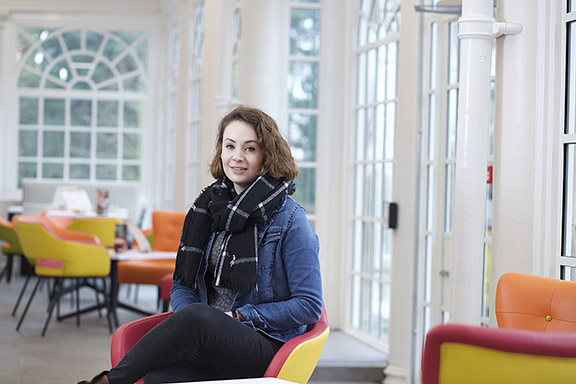
STUDENT PROFILE
Abbi McGlennon
Equine Sports Science / Equine ScienceUnited Kingdom
https://www.ntu.ac.uk/study-and-courses/courses/our-students-stories/animal-rural-environmental-sciences/abbi-mcglennon
-
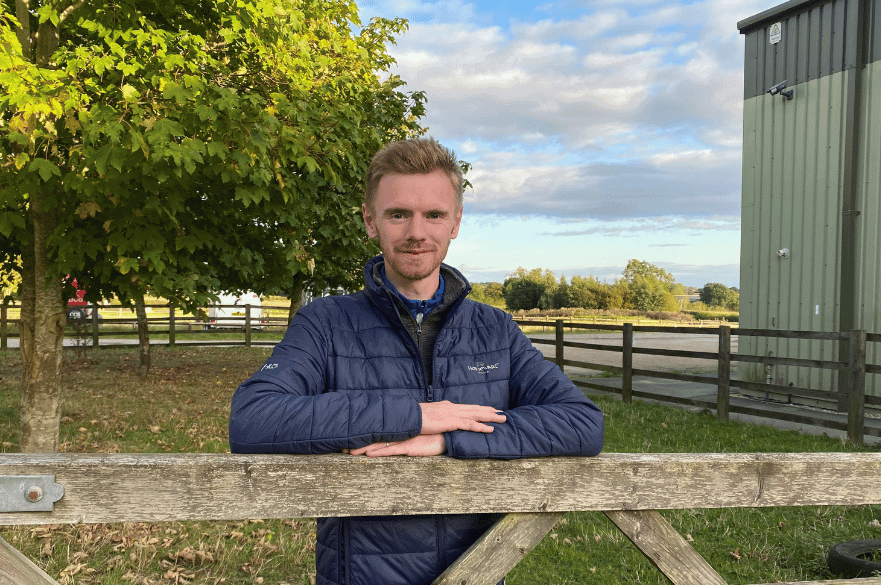
STUDENT PROFILE
Adam Channer-Lee
Equine Sports Science / Equine ScienceUnited Kingdom
https://www.ntu.ac.uk/study-and-courses/courses/our-students-stories/animal-rural-environmental-sciences/adam-channer